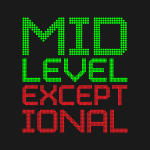New Faces, New Places: Lance Stephenson Signs With Charlotte Hornets
The Player: Lance Stephenson
The Team: Charlotte Hornets
The Contract: Three years, $27.5 million; $9 million in Years 1 and 2, $9.5 million in Year 3; team option for Year 3
First Take: Charlotte has to be very happy with snapping up one of the last major free agents on the market at a bargain. The Hornets were prepared to pay Gordon Hayward $63 million over four years before Utah matched their offer sheet. Stephenson, a much stronger defender, had a win share of 7.4 last season, compared to 3.6 for Hayward.
At the beginning of the offseason, Stephenson turned down a five-year, $44 million offer from the Pacers, calling it a “low-ball offer”. But the Hornets’ contract is marginally higher per year, and his agent suggested that Stephenson was more motivated by dissatisfaction with his situation on the Pacers. It seems that Stephenson’s mercurial behavior drove down his value; Dallas would have offered him two years and $20 million had Houston matched their offer for Chandler Parsons.
With that said, Business Insider points out that Stephenson may benefit by becoming a free agent after the 2016-17 season, when a new TV deal is projected to substantially increase player salaries. He takes on some risk now for potential reward down the road.
How does it affect the salary cap?
Charlotte had quite a bit of cap space going into free agency, with only about $43 million in salaries and holds, according to ShamSports. But the signings of Marvin Williams ($7 million/year), Brian Roberts ($2.75 million/year), and now Stephenson brings them within $1.5 million of the $63.2 million salary cap, assuming cap hits equal to average annual value.
How does it affect the luxury tax?
The Hornets are very unlikely to approach the $77 million luxury tax threshold next season.
What’s next for Charlotte?
Charlotte is still in need of size off the bench with the departure of Josh McRoberts, and could use a backup point guard to Kemba Walker. Between their remaining cap room and the mid-level exception ($2.58 million for teams below the salary cap), they’ll try to make these upgrades on the cheap.


